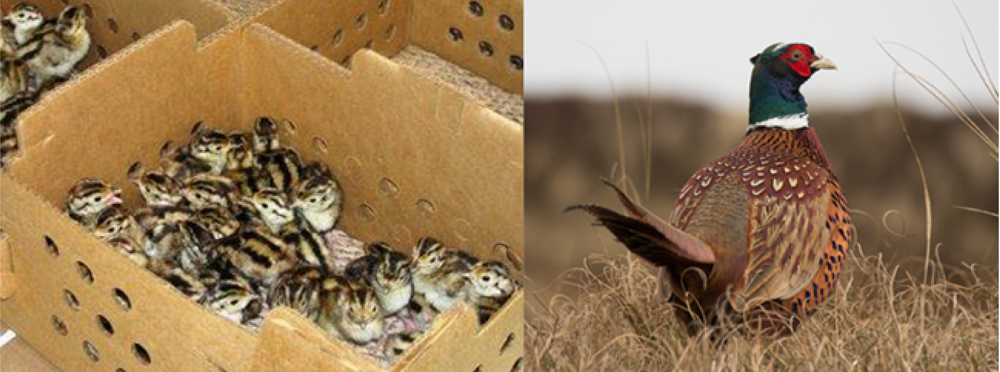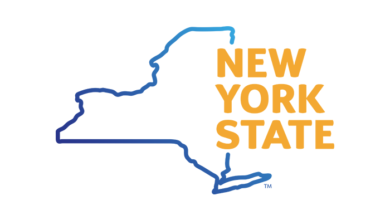Day-old Pheasant Chick Program

Ring-necked Pheasants stride across open fields and weedy roadsides in the United States, southern Canada and the Finger Lakes area of New York State. The population of these birds has declined since the late ‘60s and early ‘70s. Factors that have contributed to this decline are the loss of fallow grasslands for nesting and brood-rearing, decline in grain farming, and commercial and residential development. To help assist with the repopulation of this colorful bird, citizens can help by participating in the Day Old Pheasant Chick Program and Adult Pheasant Release Program.
Why would someone want to participate? The rearing is enjoyable, challenging, and teaches youth responsible behavior. Released pheasants offer fall hunting opportunities by providing sportsmen and women the opportunity to enjoy an open field hunting opportunity that is gradually disappearing. Many across the state own and care for gun dogs that are specially trained to hunt and retrieve pheasants or other game birds. The number one reason is that people enjoy seeing and hearing pheasants.
The rearing and release of pheasants does require a great deal of responsibility by both 4-H youth and adults with substantial time commitment. Daily care is necessary to monitor the health of the birds to ensure there is adequate feed and water for the rapidly growing chicks. The birds are brooded until six weeks old and then moved to an outdoor flight pen where they continue to grow and develop their brilliant adult plumage before being released. Release needs to be before the end of the pheasant hunting season. Participants may choose to integrate other wildlife management strategies such as banding and releasing at different ages and on different site areas to monitor mortality and survival. This varies for different regions of the state. Assistance from organizations such as Pheasants Forever is available to help improve habitat along with cooperative ventures between local sportsman’s clubs and participants. More detailed information on rearing these chicks can be found online at http://www.dec.ny.gov/docs/wildlife_pdf/dayoldchicks.pdf.
Interested Monroe County individuals should contact Susan Coyle at Monroe County Cornell Cooperative Extension at 585-753-2550, email at smc226@cornell.edu or visit at 2449 St. Paul Boulevard, Rochester, to sign up to participate. Chick orders are due by Saturday, March 25, 2023.
Provided information and photo




